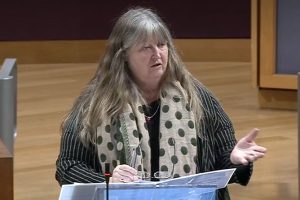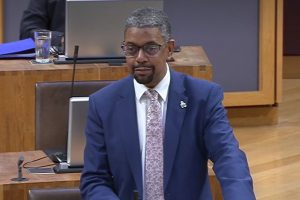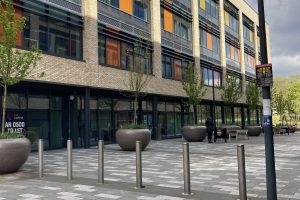In the serene landscapes of Krabi, southern Thailand, Lee Francis, a 54-year-old holidaymaker from Church Village, Rhondda Cynon Taf, faced a holiday nightmare on January 19. The final day of his vacation took an unexpected turn when, alongside his wife Clare, he found himself entangled in a life-altering motorbike crash.
As the couple navigated their way through a corner marked by roadworks and gravel, tragedy struck. The bike, cruising at a modest 20 mph, collided with a barrier. The impact, seemingly minor, left Lee paralyzed from the waist down, a stark contrast to the dreamy atmosphere that enveloped them just moments before.
Lee vividly recalls the bittersweet memory of Clare tapping him on the leg, uttering, “we’re living the dream.” Little did they know that this dream would shatter on that fateful corner. Despite the initial shock, Lee’s immediate realization that he couldn’t feel his legs and struggled to breathe marked the beginning of a harrowing journey.
Transported to Bangkok Phuket hospital, Lee’s medical ordeal took a complex turn with the development of a pulmonary embolism, complicating the treatment for his three spinal fractures. The surgeon’s acknowledgment of Lee’s fortuitous survival through the night underscored the gravity of the situation. Despite the medical team’s week-long efforts, Lee now grapples with the reality of life in a wheelchair.
A dedicated community occupational therapist, Lee’s career has revolved around aiding those with disabilities in living independent lives. Now, he faces the challenge of adapting to a life changed by his own disability. The emotional toll is evident as he admits to daily tears since the crash, questioning his ability to cope and maintain relationships.
As Lee’s family organizes the necessary care, he reflects on the profound impact of the accident, stating, “It has broken my heart. My body doesn’t feel like it’s part of me anymore. But I am lucky because I am here, and I am alive.”
Survival, according to Lee, was attributed to the protective gear he wore, with a particular emphasis on the crash helmet. Urging others to prioritize safety, he highlights the critical role such equipment plays in preventing life-threatening injuries.
Lee’s wife Clare, who also endured injuries in the crash, is grappling with both physical and emotional scars. The couple, married in the summer of 2022, now faces an uncertain future, navigating the profound changes the accident has brought to their lives.
Amidst the challenges, Lee continues his treatment and rehabilitation at the University Hospital of Wales in Cardiff, steadfast in his determination to look ahead. Expressing a desire to explore wheelchair basketball in the future, he currently focuses on building upper body strength to transition from the bed to a wheelchair in the coming months. The resilient Welshman, once an active sports enthusiast, confronts his new reality with a commitment to rebuilding and adapting to the challenges that lie ahead.
















